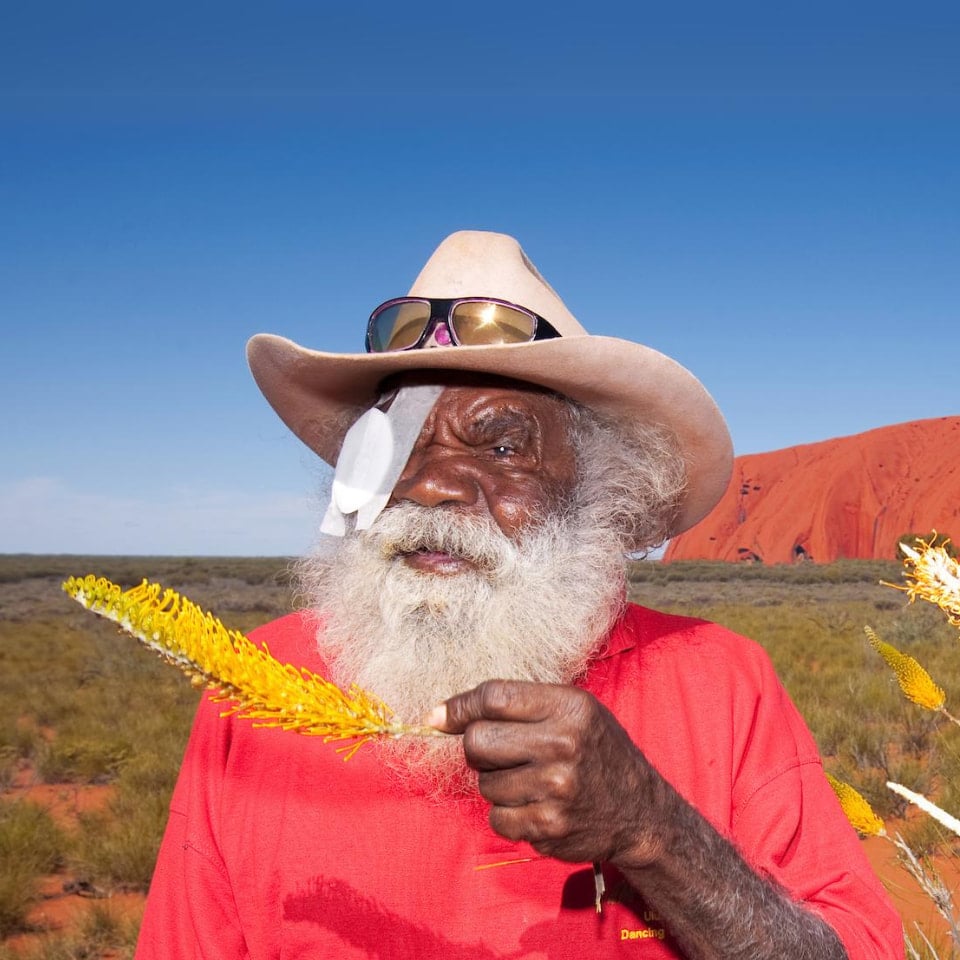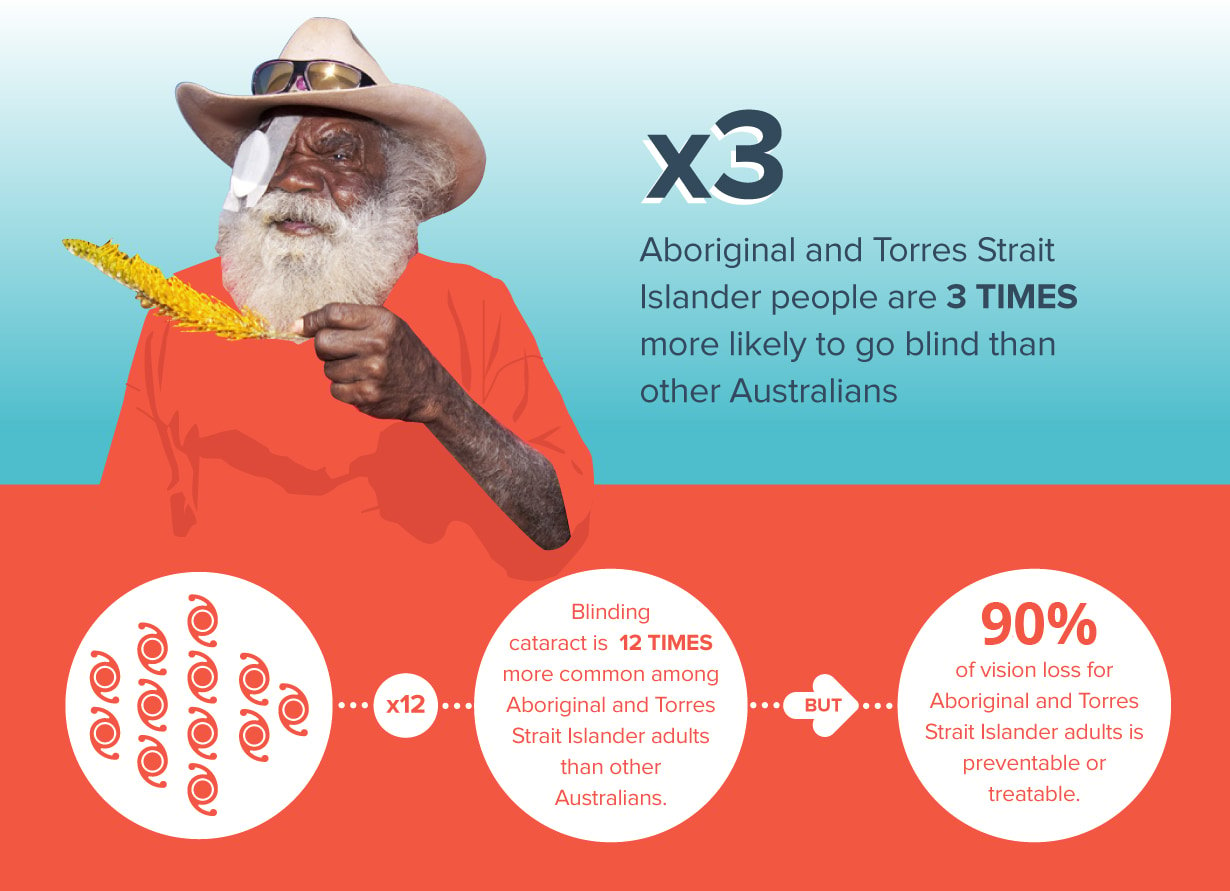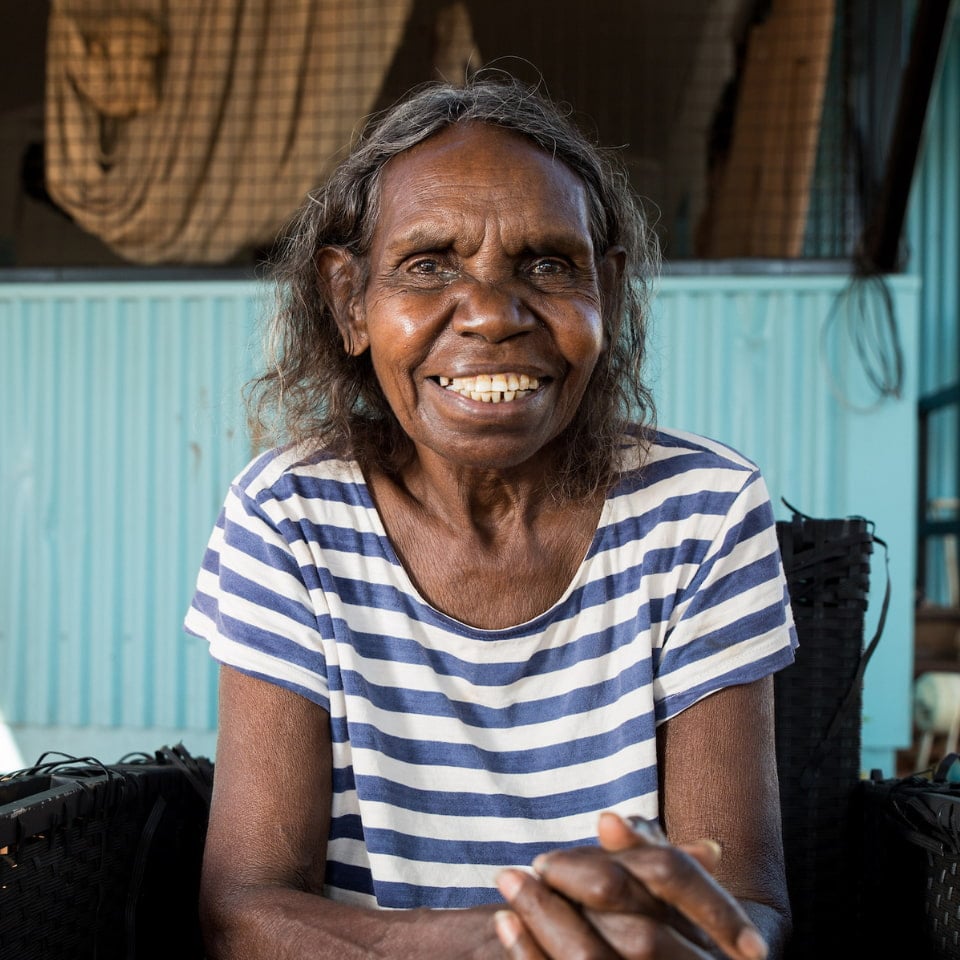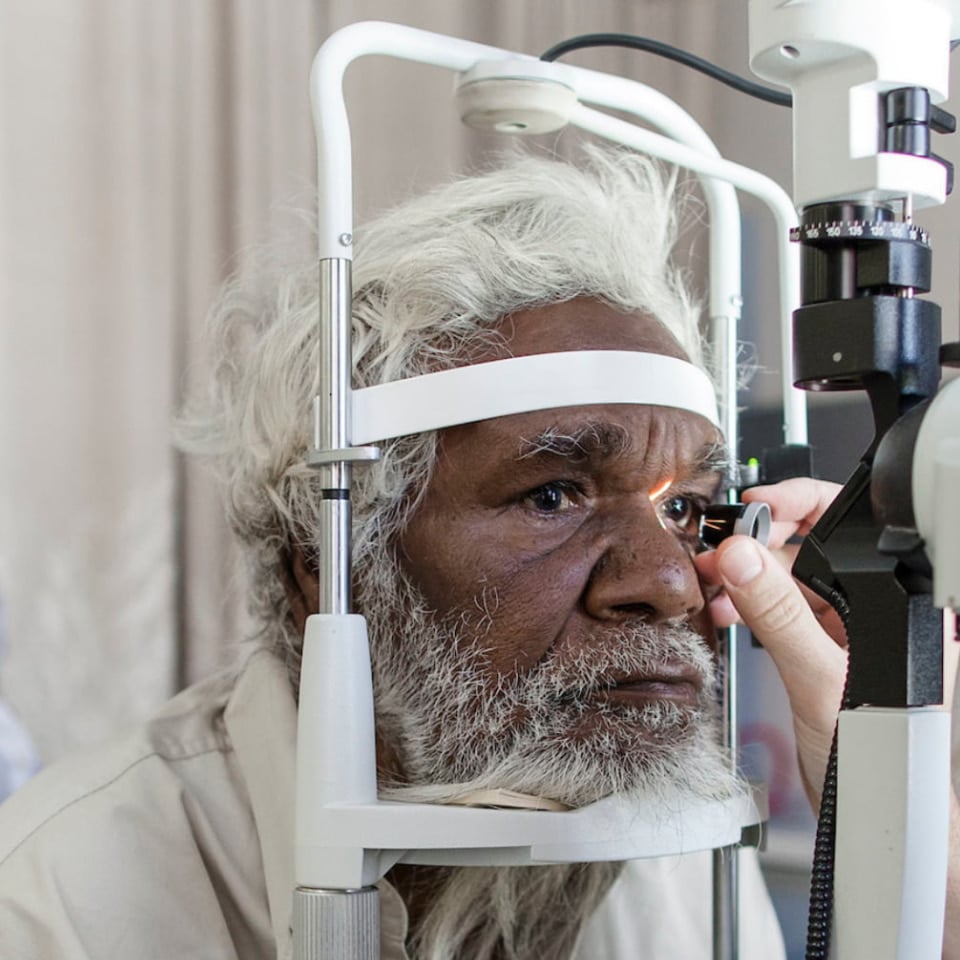Did you know that Aboriginal and Torres Strait Islander people are three times more likely to have vision impairment or go blind than other Australians? Or that cataract is 12 times more common among Aboriginal and Torres Strait Islander Australians than non-Indigenous Australians? (National Eye Health Survey Report, 2017).
For decades, Aboriginal and Torres Strait Islander people have experienced lower health outcomes than non-Indigenous Australians. Without healthy vision, tasks like driving, studying and working become extremely challenging.
What’s more, we know that as many as 35 percent of Aboriginal and Torres Strait Islander adults have never had an eye exam (AIHW 2015) and without professional help, will continue to experience disadvantage.
Here's what we'll cover...
Click on the link to jump to sections that you're most interested in.
- The eye health gap is improving
- What is vision impairment and blindness?
- What are the main eye health conditions for Aboriginal and Torres Strait Islande people?
- What are the main risk factors for vision loss and blindness?
- Why is eye health important?
- Getting the facts straight: The national eye health survey

The eye health gap is improving
The good news is that the eye health gap between Aboriginal and Torres Strait Islander and non-Indigenous Australians is improving.
In under a decade, we have seen progress. In 2008, Indigenous Australians experiencing eye health issues at six times the rate of their non-Indigenous counterparts. By 2016, the ratio had reduced to three times.
We also know that 90 percent of vision loss for Aboriginal and Torres Strait Islander adults is preventable or treatable (National Eye Health Survey Report, 2017).
We believe that ending avoiding blindness is achievable.
What is vision impairment and blindness?
Vision loss comes in a range of forms, from vision impairment, through to blindness.
Vision impairment is where one or more functions of the eye are restricted or limited, affecting visual acuity (clarity of vision), visual fields (range of vision) and colour perception.
Blindness is a complete loss of sight. There is a specific measuring system used by eye health professionals to diagnose the severity of vision impairment.
Vision impairment and blindness are measured by comparing what a person with normal vision can typically see. For example, someone with vision impairment wouldn’t be able to read a vision chart at six metres away, that someone with normal vision could read at 12 metres. That is, their visual acuity is less than 6/12-6/6.
Someone who is blind, on the other hand, can’t read a vision chart from six metres away, that a person with normal vision could read at 60 metres. So, their visual acuity is recorded as less than 6/60.

Did you know?
Have you ever wondered what 20/20 vision is? Well, 20/20 is just the imperial version of 6/60!
Would you like to learn more about the anatomy of the eye and eye diseases?
What are the main eye health conditions for Aboriginal and Torres Strait Islander people?
Aboriginal and Torres Strait Islanders experience higher rates of many of the major eye conditions found in Australia, when compared to non-Indigenous Australians (National Eye Health Survey Report, 2017).
This includes:
- uncorrected refractive error (63% Indigenous and 62% non-Indigenous),
- cataract (20% Indigenous and 14% non-Indigenous),
- trachoma, and
- diabetic retinopathy (5.5% Indigenous and 1.5% non-Indigenous)
Other major eye health conditions include age-related macular degeneration, and glaucoma, however the Indigenous population experiences these age-related, degenerative conditions at a lower rate than non-Indigenous people.
Lower treatment rates for Aboriginal and Torres Strait Islander people can also see conditions worsening unnecessarily.

Want more information?
What are the main risk factors for vision loss and blindness?
A risk factor is anything that increases the likelihood of a person developing a particular disease, illness or injury.
There are a range of risk factors linked to developing vision loss or blindness; biological, cultural and environmental. Some of these factors, like genetics, growing old, premature birth or sustaining a physical eye injury, we can’t control.
But there are many that we can control, by making healthy choices throughout our lives.
These can include:
- Not smoking cigarettes and limiting alcohol intake
- Protecting our eyes from direct exposure to sunlight
- Ensuring that we have a healthy diet and exercise throughout our lives (Australian Indigenous HealthInfoNet - Vision loss and blindness)
Patients are often prevented from receiving checkups by environmental factors, like geographical isolation and socioeconomic disadvantage. These can limit detection and treatment rates, resulting in more severe eye conditions over time (PM&C report, 2017).

Let's take a look at the numbers
Did you know that 90 percent of vision loss among Aboriginal and Torres Strait Islander Australians is preventable or treatable?
That’s why in 2018, The Fred Hollows Foundation screened 16,140 people, performed 2,569 operations and treatments, and distributed over 1,142 pairs of glasses to people living in remote and underserviced Australian communities.
To read more about our impact, download our 2018 Annual Report.
Why is eye health important?
Vision impairment or blindness can dramatically affect our personal, professional and social lives.
Poor eye health can make everyday life a lot harder, affecting our ability to drive, attend school or work, and interact with friends and family. It can also make it difficult to maintain our physical health by cooking for ourselves and exercising.
Those with vision impairment or blindness are also much more susceptible to falls that lead to injury and they often need daily help from friends and family.
Babies and young children with poor eye health often experience delays in their social and linguistic learning. Behavioural problems can often result, leading to decreased participation in school. Delayed physical, mental and emotional development can put children with vision loss behind for life (Overview of Aboriginal and Torres Strait Islander Health Status 2018).
It’s good honest work when you walk into a ward where people have had good eye surgery and you can see them looking at you and their whole face lights up and they watch you and your smiles are returned or even anticipated. So it’s a pretty important part, the non-verbal human communication depends to a large extent on eyeball-to-eyeball contact and that’s pretty exciting stuff.
Want more information?
Visit our resources covering eye conditions affecting Aboriginal and Torres Strait Islander communities:
For general eye health information visit our general eye health resources page

Want more information on Aboriginal and Torres Strait Islander eye health?
Did you know that 90 percent of vision loss among Aboriginal and Torres Strait Islander Australians is preventable or treatable?
That’s why in 2023, The Fred Hollows Foundation screened 13,321 people, performed 3,095 operations and treatments, and distributed over 2,034 pairs of glasses to people living in remote and underserviced Australian communities.
To read more about our impact, download our 2023 Annual Report.
Getting the facts straight: The National Eye Health Survey
Released in 2017 by the Centre for Eye Research Australia and Vision 2020 Australia, the National Eye Health Survey (NEHS) examined the eyes of 1,738 Aboriginal and Torres Strait Islanders and 3,098 non-Indigenous Australians. Individuals were randomly selected from rural, remote and urban locations across Australia.
This groundbreaking survey was the first ever nationwide eye health survey in Australia that was able to clinically examine such a large portion of the Australian population. Age-adjusted data found that 18,300 Aboriginal and Torres Strait Islanders aged over 40, had visual impairment (11%) or blindness (0.3%) (PM&C report, 2017).
The report highlighted the ongoing inequality experienced by Australia’s many Indigenous communities, examining eye health data with a focus on geographical region, gender and age, and producing up-to-date data on the treatment coverage rates for the main eye conditions.
Disclaimer: The content on this page is not intended to be medical advice. For medical advice, please contact your local health professional. All statistics quoted use the most recent information available, to the best of our knowledge.
